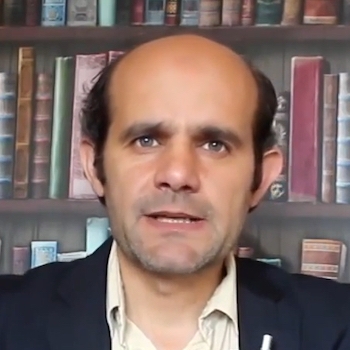
The Myth of a Populist Regime in Syria
It has been asserted that rural areas in Syria constituted the socio-economic base for the Syrian regime after the revolution of March 1963 and afforded the Syrian regime its legitimacy and strength. Such misleading allegations need to be refuted by acknowledging present and past events.
The suffering, the hardship, and the misery of the rural areas in Syria for more than a century before 1963 cannot be easily dismissed because they constituted the base wherein the Baath Party found fertile ground to plant its ideology and to launch its campaign to gain power. Although the Baath ideology appeared to respond to the suffering and misery of the rural peoples, it was not able to attract genuine believers in the rural Sunni areas due the fact that Baathist ideology is inconsistent with Islamic norms and theological teachings.
In fact, Baath ideology found much greater support among non-Sunni populations as its socialist policies like land reform and nationalization were far more compatible with those who weren’t burdened by an Islamic framework. Some Christian workers, for instance, in the Al-Khomasiyyah Company in Damascus advised their colleagues against working too hard because the ownership of the big companies in the country would eventually be transferred to the workers themselves as part of the nationalization policies. Meanwhile, many Ulama asked their Muslim followers to stop working for Al- Khomasiyyah, post nationalization, as this policy contradicted Islamic rules. Some of the Muslim workers left the company without a second thought, but many others stayed instead.
Nonetheless, Baath ideology was never accepted by the majority of Sunni peasants or workers, despite the arguments put forward by some. Baath ideology was imposed on the country through a revolution from above, and not through a popular uprising.
The Baathists and the Nasserist army officers from Sunni, Alawi and Druze backgrounds led the March Revolution in 1963 to victory and were pivotal to its success. In turn, Baathist army officers plotted against their Nasserist partners, mainly Sunnis, and by 1966 most of the influential Sunni officers were gradually purged from the army, and the Alawis won the struggle for power against the Druze. The era of an Alawi sectarian regime in Syria had begun.
In 1970 when Hafez al-Assad took control of the country, he started building a closed sectarian family tribal Alawi regime, and in a few years his brother Rifaat became the second most important man in the country. Nikolaas Van Dam mentioned that the election of Rifaat al-Assad, a member of the Syrian Regional Command of the Baath Party in April 1975, could be interpreted as a reflection of the fact that President Hafez al-Assad relied to an important degree on Alawi officers from his own family, tribe, or village neighborhood. Throughout, Alawi influence was increasing in the state, army, and society.
Moreover, Hafez al-Assad underpinned his rule through an alliance with the merchant community in Damascus and Aleppo. It was akin to a marriage between the Alawi army and the Sunni business elites and this relationship remained strong until the death of Hafez al-Assad in 2000. For instance, in 1982, after the Hama massacre, Hafez al-Assad was seemingly on the brink of ruin and in danger of collapse, but the Damascene merchant community provided him with unprecedented support enabling him to survive. Throughout, Hafez al-Assad did not rely on the rural areas to reclaim a notion of legitimacy because he knew that such legitimacy had never existed in their eyes.

Charles Paterson believes that Hafez al-Assad’s regime consisted of two parts – public and private. The public part is the government itself which is the formal structure of political and economic affairs that keeps the country running on a day-to-day basis. The private part is the hidden inner core of his security forces and the army who were overwhelmingly made up of Alawis whom Assad relied upon for security and protection for himself and his government. This is true today under Bashar al-Assad.
Therefore, it was the ruling Baath Party, but not Baath Ideology that attracted people who wanted to join in order to enjoy power, prestige and advantages. However, the Baath authority was always restricted by the Alawi controlled army and security forces.
In 2011, when the ‘revolution from below’ took place in Syria, the Baath Party almost disappeared and the rural areas that some had alleged to be the regime’s popular base actually formed the revolution’s backbone. In fact, most of the Sunni rural areas in the country participated in the uprising. Ironically, big cities like Damascus and Aleppo were relatively calm due to their respective centers of business, so the Sunni bourgeoisie thus weakened the uprising in Damascus and Aleppo. Moreover, the Syrian regime sought the help of foreign Shia militias from Lebanon, Iraq, and Iran to suppress the rural upheaval and to counter the popular uprising in the country; the Shia militias later fought the Free Syrian Army and an assortment of Syrian Islamic groups. The Free Syrian Army is indeed a rural formation: its founder and early leaders belong to rural areas.
Moreover, all the fighting groups in the opposition have enjoyed a popular rural base in the country.
The Syrian regime’s military campaign against the rural areas was unprecedented in its brutality and cruelty and was supported by Assad’s allies. Countless numbers of massacres were committed by the regime in many villages across the country. Moreover, the Russian air force that was invited in by the regime has almost destroyed all of the rural infrastructure and civil institutions, such as schools, bakeries, and hospitals – in addition to causing huge civilian casualties.
Overall, the March Revolution in 1963 and the Correct Movement in 1970 were imposed on the people by a revolution from above, and the regime has always had a sectarian nature, and was never publicly representative. In fact, Hafez al-Assad, along with some Alawi, Druze and Ismaili military officers, used the Baath Party as a vehicle to attain power and rule the country. He and his son Bashar relied more on the rhetoric of resistance against Israel in order to reclaim some public legitimacy, although such rhetoric was proved to be empty and false after March 2011, when he pulled the military division from the Israeli borders in order to confront the popular uprising.
The idea of a populist regime should be inconsistent with sectarianism; a populist regime should oppose all foreign intervention in the country, rather than actually inviting them in. Seeking the help of foreign militias and foreign forces in order to suppress a local popular uprising is not the virtue of a populist regime, but the iniquity of a brutal dictatorship that enjoys direct or indirect worldwide support.

